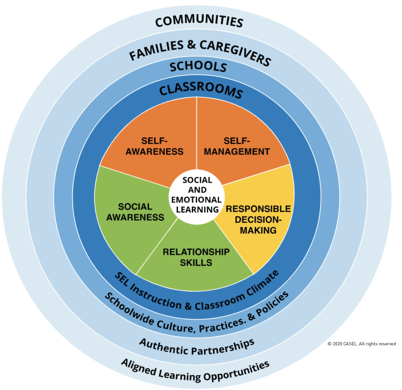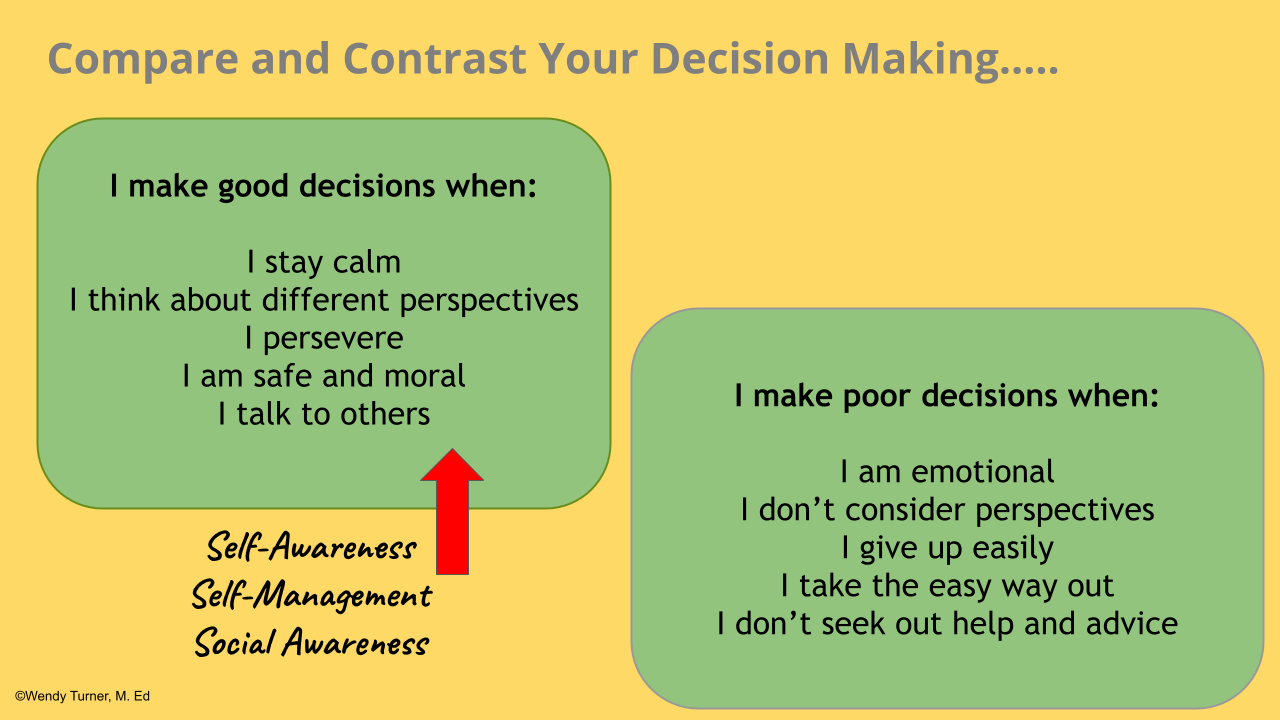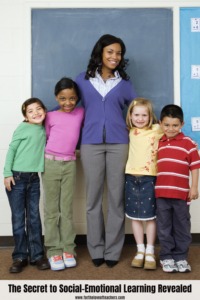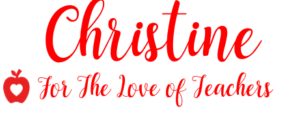
Social-Emotional Learning (SEL) is everything right now. We know this. Social-Emotional Learning has been talked about more in education since Covid-19 closed in on our lives almost 18 months ago. We have deeply felt new challenges in our hearts, souls, and daily lives as educators, parents, sons and daughters, community members, and all of the identities we enjoy. Now more than ever, our students need us to show up ready to support their Social-Emotional development. What’s the secret to this? It’s Adult SEL. It starts with us. I wish I knew earlier in my career that my own SEL skills are so important.
What is Social-Emotional Learning?
So what is SEL exactly? CASEL, the Collaborative for Academic, Social, and Emotional Learning, defines SEL as “an integral part of education and human development. SEL is the process through which all young people and adults acquire and apply the knowledge, skills, and attitudes to develop healthy identities, manage emotions and achieve personal and collective goals, feel and show empathy for others, establish and maintain supportive relationships, and make responsible and caring decisions.” SEL has five competencies: self-awareness, self-management, social awareness, relationship skills, and responsible decision-making. It is a specific set of skills that can be developed and practiced in many settings starting with classrooms. Some associate this work only with young children, it’s key to know and understand that this work is critical for students of all ages and adults in education. The graphic below illustrates the competencies and settings nicely.

Adult SEL…What??
A key component of SEL is that the adults fostering it in education settings have strong skills themselves! This makes so much sense. Research from The Learning Policy Institute’s case study on Preparing Teachers to Support Social-Emotional Learning shows that a key implication for schools is to start with the social and emotional learning of the adults. “When teachers and principals are aware of their own emotions and how these emotions impact the classroom and school environment, they are more likely to support students in understanding their own emotions.”
So how do we “do” Adult SEL? All adults can take a look at their personal competencies and identify areas for improvement. Here are some quick tips for getting better at the 5 competencies.
Self-Awareness: Identify your personal strengths and weaknesses using The Virginia Institute on Character free survey. Once you complete the survey you’ll receive a rank-ordered list of the 24 character traits their survey analyzes. Understanding where you excel and your opportunities for improvement is empowering.
Self-Management: Become an emotion expert by understanding more than our basic human emotions of happy, sad, worried, and mad. Use this “Emotion-Sensation” Wheel from Counselor Lindsay Braman to see beyond basic emotions and identify physical signs that the emotions are occurring or about to happen.
Social Awareness: This competency is all about empathy, feeling with others. Learn how to authentically show empathy to students, friends, and family by adhering to these 7 guidelines. As an extrovert mom who doesn’t suffer from anxiety, this article from Understood.org changed my life in terms of how I support our daughter, an introvert with anxiety. Simple and immediately relevant, the platinum rule, “treat others the way they want and need to be treated” is one of my favorite mantras of all time.
Relationship Skills: We can all work to improve our personal and professional relationships by listening with intention. Check out this video from a group of 4th graders on how to be a better listener. This common-sense advice stopped me cold in my tracks and I got back to this list often as I work to strengthen my relationships at home and at school on a regular basis.
Responsible Decision Making: We all make better decisions when we are self-aware, manage ourselves well, have empathy for others, and enjoy good relationships. The previous competencies are the secret sauce that adds up to successful decision-making.

You can learn more strategies to support your SEL development by listening to my podcast with Cult of Pedagogy “Social-Emotional Learning: Not Just For Kids”.
Please check back at the blog when I share strategies to bring the 5 SEL competencies alive in your education space regardless of who you are or work with. In the meantime, you can check out more of my work here.
I would like to give a gigantic THANK YOU to my friend and colleague Christine Weis and her site For the Love of Teachers, and its community to share my passion for all things SEL. I wish you all the best heading into the 2021-2022 school year.
About Wendy Turner: I am a wife, a mom, and a teacher. I’ve been teaching 2nd grade since 2010 in Wilmington, Delaware. A warrior of social-emotional learning, I help my students embrace and embody empathy, resilience, citizenship, and growth mindset through dynamic classroom experiences, a global learning lens, and a trauma-invested learning experience. I am trying to know more and do better as I work to be anti-racist. Being named the 2017 Delaware Teacher of the Year, a Compassion Champion, a Presidential Awardee for Excellence in Teaching Science, and a Global Learning Fellow with the NEA Foundation have been career highlights. You can find me on Twitter and Facebook or email me at wendymturner@gmail.com. I love to engage with teachers around the world and support SEL!
Thanks for reading!
If you like it, then pin it!



Christine Weis is a passionate educator, classroom management coach, wife, and mom of two busy boys. She enjoys teaching, writing, and creating resources for teachers.




Aaahhhh…so, all along, this is what SEL stands for? I had no idea. In my honest opinion, I believe this is the kind of learning we all need to follow, post COVID19! Empathy and kindness need to emphasized in all that we are learning!
Really intersting to read about with two littles in school!
This is my first time learning about this and glad I was able to drop by here. Now I have new learning. This is important especially now that the kids are going back to school.
I will definitely listen to your podcast entitled “Social-Emotional Learning: Not Just For Kids”. I’ll let you know my feedback. Good job!
This is so important for kids and adults. So many people lack self awareness which causes so many issues in interpersonal relationships and friendships. There so many great takeaways here! Sharing this with a few friends.
This is actually very helpful for adults, too. I learned quite a bit about myself and I hope it will help me guide my kids as well.
Your post has so much helpful information. I’ll keep the concepts in mind so that I can teach them to my kids.
Such a worthwhile and wonderful post. It’s so important that we take time to nuture children’s emotional intelligence as well as their mental intelligence.
I am also a teacher and this is such a fascinating topic to me. Thanks for sharing
I agree that we can all improve our personal and professional relationships by listening with intention. There are so many benefits of listening with intention.
I listened to your podcast 🙂 It was really informative
It’s good to know more about Social-Emotional learning. Will read more about this topic
This is the best time to discuss about this topic. The pandemic has negatively impacted our physical and emotional life.
This is a very interesting educational approach. Apart from all the academics, i believe kids really have to develop these social and relationship skills. With so many online social platforms that can surely affect their attitude and way of thinking, an approach like this could be useful to guide them properly.
This is a very informative post. I feel as if it would be super helpful for all adults to read this. We can all work on our interpersonal skills.
Yes! Loved reading this! As a pedagogy student it is very familiar to read. Xx